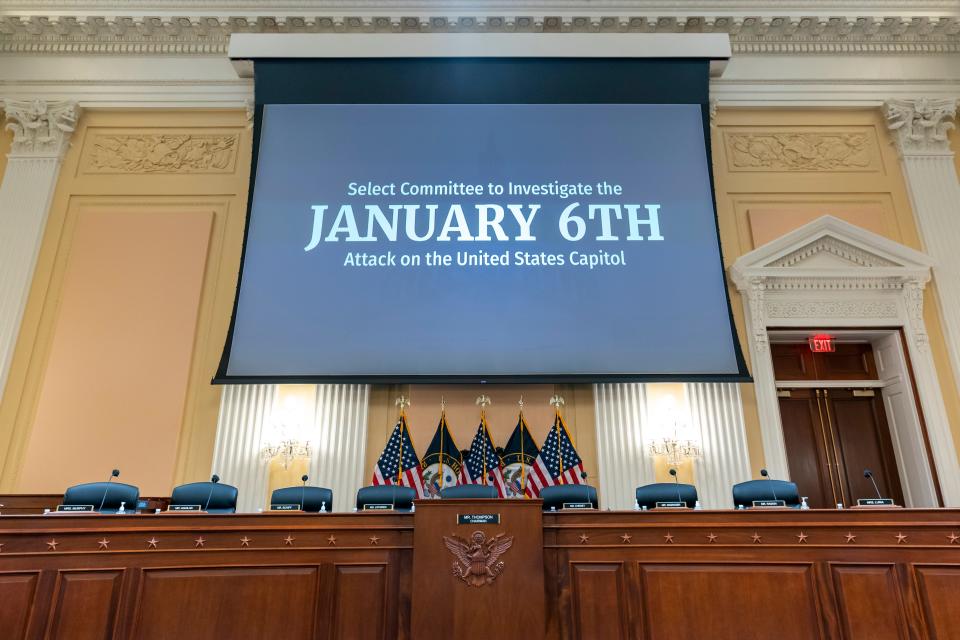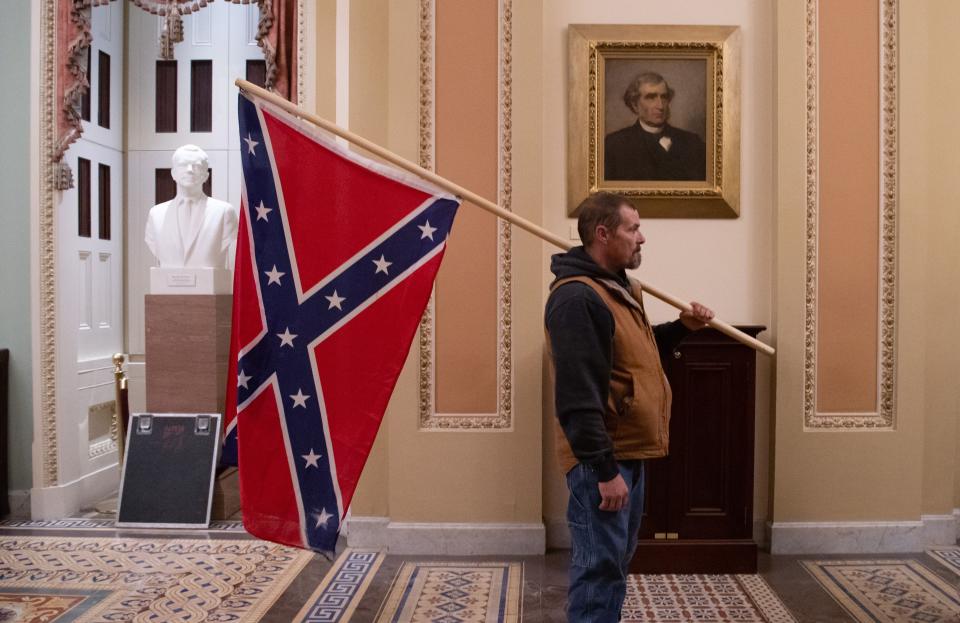Opinion: It's time to start thinking about the unimaginable choices in front of us
In their excellent article, "Ethical Maxims for a Marginally Inhabitable Planet," bio ethicists David Schenck and Larry Churchill invite the willing and able to fully grasp and cope with the almost unimaginable state of environmental collapse and consequent disruption virtually assured by the year 2031. They suggest we ask ourselves how and who we want to be in those conditions, and offer helpful guidelines for preparing to be our best selves and for assuming the most constructive roles possible in the midst of chaos.
This is not for the faint of heart, and perhaps most of us will wait and react as the crisis unfolds, but those who are better prepared mentally and emotionally could be valuable leaders in the transitions to come. I’m now thinking their advice could be usefully applied to dealing with our collapsing American democracy.
The first of Schenck and Churchill’s six maxims calls for grasping the full scope and reality of the situation. For many Americans, the fall of democracy is beyond our ability to imagine. Immigrants, oppressed minorities and people with ties to countries without or with failed democracies likely have a much more realistic understanding of how fragile democracy is.
For many, however, the rise of authoritarianism and fascistic attitudes among the far right is a bit concerning but not alarming. After all, since the Civil War we’ve enjoyed democratic stability and world-wide admiration as a beacon of democracy. We believe we are exceptional and will overcome all threats to our freedom because we always have. Perhaps that’s still true as to foreign enemies, but we seem blind to the overwhelming threats coming from within, from our own.
In fact, these threats have been longstanding. As Nancy MacLean explains in her book, "Democracy in Chains," Libertarians and oligarchs have always thought of constitutional "liberty" as their personal freedom to acquire and hold as much wealth and power as they want without regard or responsibility for others or for a common good. They have been working for at least half a century to neutralize the power of the governed to make rules that would limit or restrain that liberty – rules like anti-trust laws, consumer protections, rights to unionize, environmental regulations and taxes, inaccurately calling those rules "socialism."

Leaders among those Libertarians have been planning and funding think-tanks and political organizations (like the tea party, the Heritage Foundation and Federalist Society) for decades to build an infrastructure aimed at convincing Americans the federal government is their enemy, and at limiting the ability of citizens to govern for public benefit at what they see as their expense. After decades of failure and limited success, they finally found themselves with an unprincipled transactional president who cared not at all about people or democracy and would make any deal that gave him profile, power and profit. With that opportunity, a coalition of interest groups willing to trade the norms of democratic process for their own causes, came into its own.
To true democracy lovers, it has been a shocking mystery that so many Americans either do not see or do not care about the damage they’ve been doing with their win-at-any-cost pursuit of single interests. Of course, if they don’t really believe in democracy and the restraint, discipline and sacrifice it requires, why wouldn’t the Republican Party leadership seek, and the party faithful welcome, permanent political dominance; and who could blame a career power broker like Mitch McConnell for doing whatever it takes to wear the crown in a single-party government.
Why wouldn’t sincere and passionate pro-lifers ignore the collateral damage of a reckless, immoral president who was handing them the chance to finally achieve their long-sought goal? Why wouldn’t the Christian right support Supreme Court appointments and rulings to put their religious beliefs on top of all others, and why would white men who feel their privileged status eroding seriously challenge the rise of white supremacy?
Once we abandon the promise of equality and the commitment to liberty for all, when we no longer agree to sharing the responsibility for self-governance with all citizens, when the goal becomes winning for ourselves at everyone else’s expense, the foundation for democracy is gone.

It’s hard to see how this ends well. It’s likely Republicans will use their new state laws, which the new Supreme Court majority almost certainly will endorse or ignore, to elect whom they want no matter what the popular vote. Or, maybe they will simply appoint senators and direct state electoral votes for presidents without the need for potentially embarrassing public elections. Once firmly in control, the oligarchs and corporations would almost certainly finish taking the country’s resources for themselves by privatizing public functions, cutting their taxes, further adjusting the tax laws to their advantage, eliminating costly environmental, safety and other regulations, and further reducing spending on public benefits like education, libraries, health care and so forth. Without a strong central government to enforce the public interest, why wouldn’t they?
And it can get worse. Maybe there will be violence this November if losing Republicans cry fraud or when Republicans overrule popular election outcomes. What will the country’s majority do when it’s clear the democracy compact is over, or when those in power use the levers of government to oppose the "resistance" or to "put down violent protests." What happens if blue states stop paying taxes to Washington or when people stop following Supreme Court rulings?
What will I do in those circumstances?
In a July 4 essay in The Atlantic, "America is in Denial," Mitt Romney warned that Americans are "blithely dismissing threats" to the planet and to democracy. These threats go hand in hand since the dramatic changes required to avoid the worst of the climate disasters can only be achieved with bold national (government) leadership. As with the climate crisis, it’s very hard to imagine these political scenarios, but they become more likely by the day and with each new precedent breaking Supreme Court decision.
It’s time for all of us to be thinking about the unimaginable choices in front of us. Unlike the climate disaster, our political disaster is not yet absolutely inevitable, but it’s getting very close.
Robert Rack lives in Clifton and is a former chief circuit mediator for the U.S. Sixth Circuit Court of Appeals. He is the co-founder of Beyond Civility: Communication for Effective Governance.

This article originally appeared on Cincinnati Enquirer: Opinion: It's time to start thinking about the unimaginable choices in front of us

